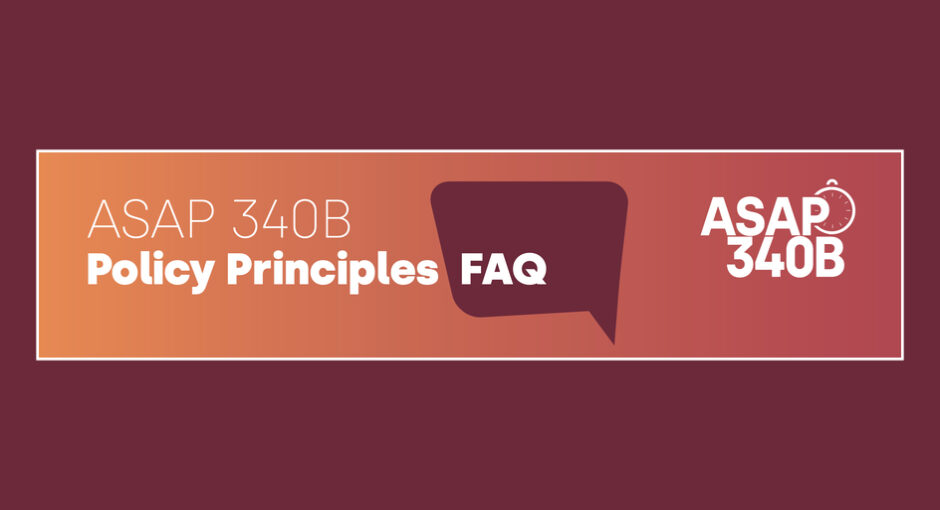ASAP 340B, the nonprofit group that the drug industry and health centers formed to help advance their joint plan to remake the 340B program, has hired an executive director and published an FAQ that responds to questions and criticism. “There is no draft legislation,” the FAQ says. “We believe Congress should draft and pass legislation that accomplishes these bipartisan proposals and will advocate for such legislation.”
The group yesterday announced it chose Thomas Johnson to serve as executive director. Johnson chairs the board of directors of Sickle Cell Disease Association of America. From September 2004 through January 2013 he was president and CEO of Medicaid Health Plans of America, the national trade association for Medicaid managed care plans.
“The 340B program is an essential part of that safety net, but today it’s clearly broken, and the consequences are unacceptable,” Johnson said in a statement. “I’m proud to join ASAP 340B, the organization that has prioritized achievable solutions over rhetoric. I look forward to serving as a voice for those who deserve a system that works for them.”
ASAP 340B also this week released an FAQ about Pharmaceutical Research and Manufacturers of America and the National Association of Community Health Centers 10-point plan to refashion 340B to ensure that it benefits “true safety-net providers.” Disproportionate share hospital participation in 340B would be significantly curtailed under their agenda. DSH hospitals would no longer be able to access 340B pricing for specialty medications and mail order drugs. DSH hospitals would also be prohibited from the use of 340B discounts from a telehealth visit or for referral prescriptions. Health centers and other grantee entities would get long-sought-after protections regarding use of contract pharmacies and pharmacy benefit manager encroachment on 340B savings. Rural hospitals “would benefit from the same flexibilities as grantees,” ASAP 340B said.
Hospital groups rapidly denounced PhRMA and NACHC’s reform principles. Ryan White Clinics for 340B Access on Monday said it is “opposed to the proposal as written” and “opposes any attempts to change the reach of the 340B program because the program is working as it was intended for RWCs.” Hemophilia Alliance leader Joe Pugliese said in the group’s member email this month that PhRMA and NACHC’s joint 340B agenda could pose “several harms to the bleeding disorders community” and “they either don’t know or do not care about the negative impact their proposals would have on our community.” Pugliese reiterated his concerns in an impassioned plea during the opening session of 340B Coalition conference in San Diego, attendees said.
Asked about such criticism and why it issued the FAQ, ASAP 340B said it “is committed to educating stakeholders about clear, practical and achievable solutions that will save the 340B program. Engaging in conversations and providing clarity around our 10 policy principles through new resources is part of that effort.”
ASAP 340B also said in the FAQ:
- “[L]egislative action is the only way to save the 340B program.”
- PhRMA is not trying to end the 340B program and is compromising on several important issues, including the role of contract pharmacies even though the concept doesn’t appear in the 340B program statute.”
- “Under the current 340B statute, there is no way to verify how many patients truly benefit from the 340B program, especially at hospitals.”
- “[G]rantees and rural hospitals will? still be able to claim 340B discounts on prescriptions filled through specialty and mail order pharmacies.”
- “The principles are not intended to remove all subgrantees from the 340B program. We
- believe subgrantees’ 340B participation should be consistent with and substantially support the aims of the relevant grant.”
- “[R]etail contract pharmacies should be located near the covered entity with which they have arrangements, but the principles do not provide additional specifics on how that should be assessed.”
- Grantees, critical access hospitals, and sole community hospitals could claim 340B discounts stemming from referrals.
- “[T]hese reforms were crafted to ensure critical access hospitals (CAHs) and sole community hospitals (SCHs) will be better supported than they are today and would benefit from the same flexibilities as grantees, including access to contract pharmacy and the ability to use 340B for scripts filled through mail order pharmacies or generated through their patient’s telehealth appointments.”
- “Public hospitals have a unique mission and typically serve a disproportionate share of low-income patients in their communities. Any updated eligibility criteria should ensure true safety-net hospitals are able to meaningfully participate in the 340B program.”
- “[C]overed entities would not lose the existing PBM payment discrimination protections they now have in some states since those state protections would be the basis for new set of uniform federal protections.”
- AIDS drug assistance programs “would continue to be categorically eligible for the 340B program, and the coalition is not seeking changes to current policies specifically governing ADAPs.”
- “The principles were designed with the intention of maintaining [hemophilia treatment centers’] current eligibility for, and use of, the 340B program.”


